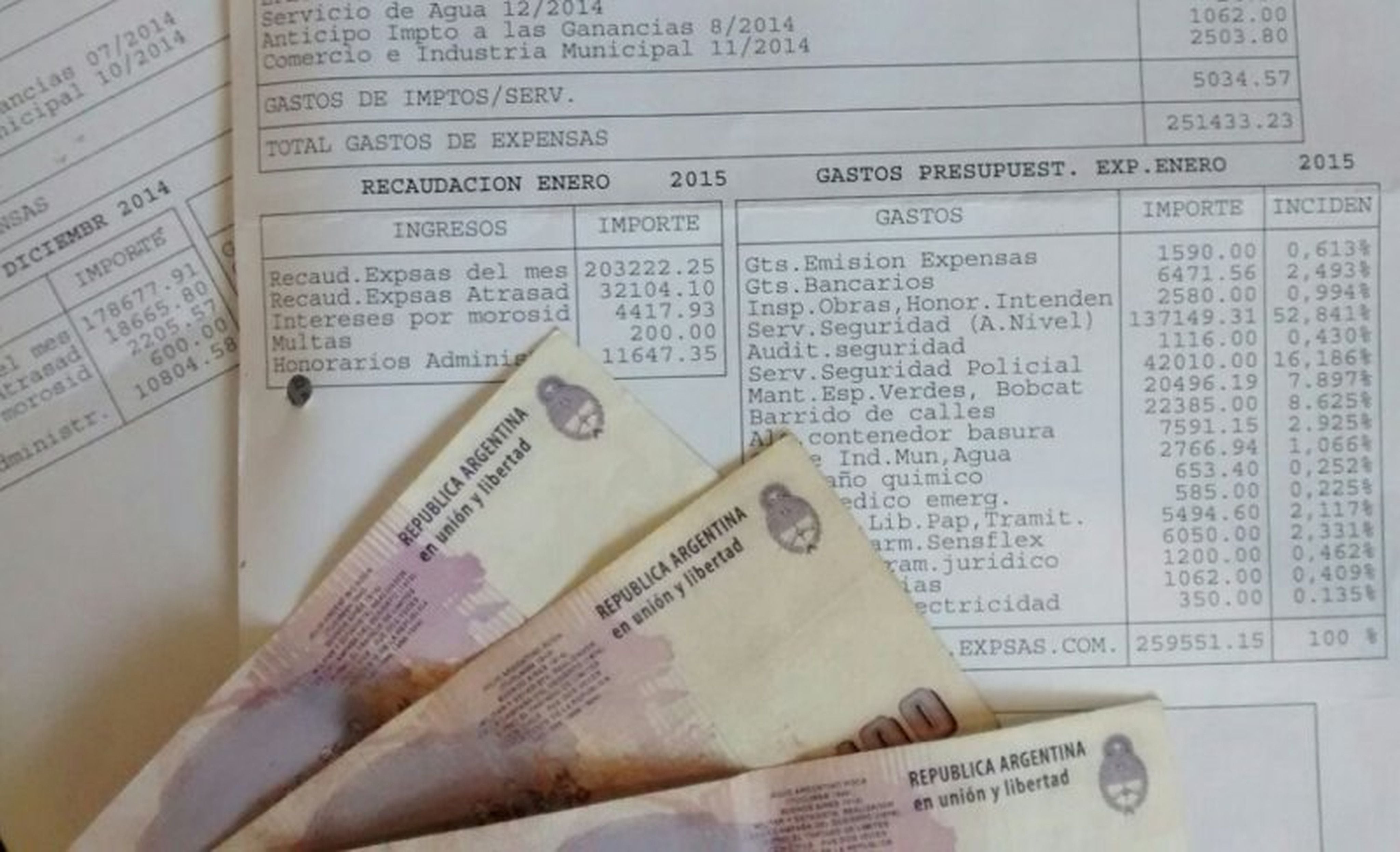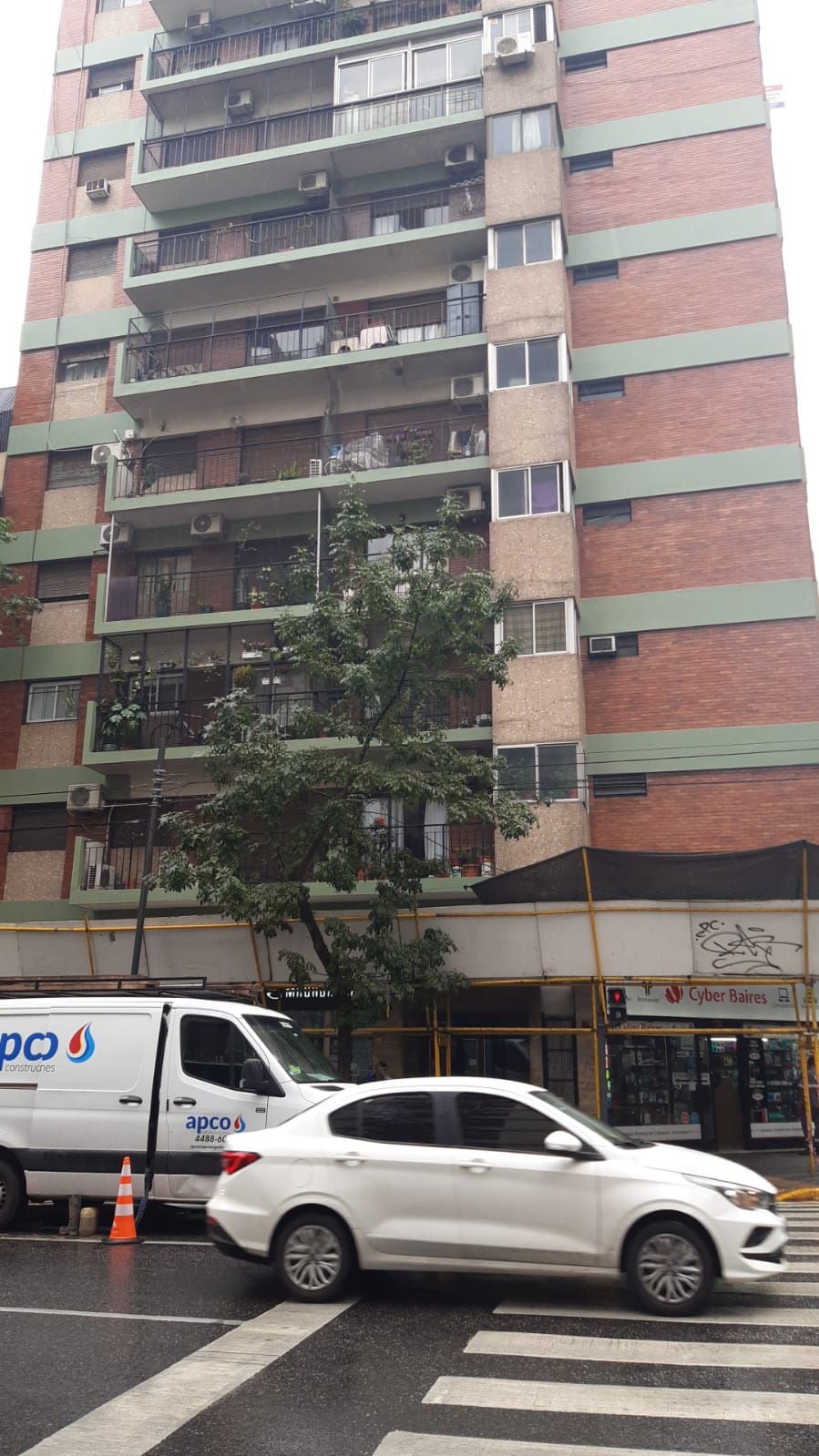
According to data provided by the Consortium League in the capital and province of Buenos Aires, the rate of delinquency due to expenses, depending on each consortium, ranges from 20% to 35%. There is an improvement compared to the beginning of the pandemic and August 2021, when it reached 45% due to the damage that restrictions due to the health crisis caused to economic activity in general and the income of many people.
In every corner of the country, the payment for the maintenance of common areas varies according to the types and common costs required for the maintenance of closed buildings and neighborhoods.
Albano Laiuppa, CEO of Consorcio Abierto (online building and neighborhood management system), told Infobae, that inland is slightly lower than average, “17% of functional units have considerable debt due to expenses.”
As reported by Consorcio Abierto, in CABA, the average value of monthly expenses is 16,987 pesos; in Gran Buenos Aires (GBA), 6,823 pesos, and inland, they average about 6,816 pesos per month.
“Since the consortium has to be managed as a home economy and there is a wide variety of consortial economies, the statistics are not accurate. We can say that the average expense of a two-room apartment in the downtown area of CABA is between $8,000 and 15,000,” said David Loisi, CEO of the Consortium League.
At the beginning of the pandemic and for a long time, general maintenance works were postponed. The decoupling generated little by little is beginning to normalize, the consortia are resuming the backlog, giving priority to the most urgent ones and leaving aside the purely aesthetic ones.

The sector talks about stages of the pending arrangements. At the beginning of the pandemic, when restrictions were much stricter, it became impossible to do so because workers could not go to buildings. According to specialists, during that period, more complaints were noticed about personnel sent by administrations. Some owners do not allow the pending work to be carried out if the staff is not vaccinated and strictly monitor the use of a mask at all times.
“Some began to be done, but with delays. Especially since suppliers were 3 to 4 months late in certain jobs and it was very difficult to find availability. Today that situation was improving. Although when there is a new wave of COVID, like the one that occurred in January with the Ómicrom strain, the attendance of workers can be complicated because many can find themselves isolated again,” said Laiuppa.
Add income
An option to add extra income can be achieved if common spaces are rented to third parties (such as party walls or terraces for advertising), of course, decided this by assembly and provided that the regulations do not prohibit it.
“In large consortia and private neighborhoods, the purchase and subsequent stockpiling of necessary items are made wholesale so as not to lose against inflation,” said Loisi.
Incidence of building growth
In recent years, the building park of CABA in particular had the emergence of new buildings that have modernized some sectors of the city, but buildings built decades ago find it difficult to maintain their value by making arrangements for this purpose. It is difficult to raise the money needed to do basic maintenance.
“By way of example, it can be said that the exterior paint job on the front of an average building (12 floors with 40 units) two years ago cost $350,000 and today that value doubled and in this sense what has happened is that the costs of materials such as painting suffered cost increases above inflation, which has raised the budgets more than the account,” Rodrigo Martínez Daveño, administrator of consortia and lawyer, explained to Infobae.
According to an estimated estimate, due to delinquencies in an average building of 12 floors and 40 units it is about $100,000 that is not collected on a total of $300,000 representing the total monthly expenses of the same.
While in private neighborhoods, unlike horizontally owned consortia, the composition of such delinquencies is different. “In buildings it consists mainly of small debts (mostly) of several non-payers, while in private neighborhoods it is a delinquency that is made up of higher amounts in a smaller number of debtors. In many cases, the delay in payments in private neighborhoods and countries has encouraged the business of repurchasing lots by developers at a low cost and then putting them up for sale at market value,” Martínez Daveño added.
More significant costs and they advise to reduce them
Consortia that are digitized can view online on the platform that they use the percentage of incidence of each item on total expenditures in an agile way, without having to save or collect settlement papers from previous expenses.

“By eliminating paper, printing, logistics costs, it is advisable to replace licenses from other non-integral systems and achieve better data traceability. In addition, all the information that we can store thanks to digitalisation allows us to manage better prices with suppliers and detect possible savings in different areas. In fact, profitability is also optimized by making each of the operations more efficient and the use of time,” said Laiuppa.
A portion of what is collected at the expense goes to the payment of utilities and taxes (electricity and ABL, for example). In the case of buildings that have a private security service, half of the proceeds are used to pay for this service and the rest is for expenses, meaning that consortia with private security pay twice the cost of those that do not have this benefit.
KEEP READING:
Últimas Noticias
Debanhi Escobar: they secured the motel where she was found lifeless in a cistern

The oldest person in the world died at the age of 119

Macabre find in CDMX: they left a body bagged and tied in a taxi
The eagles of America will face Manchester City in a duel of legends. Here are the details

Why is it good to bring dogs out to know the world when they are puppies




